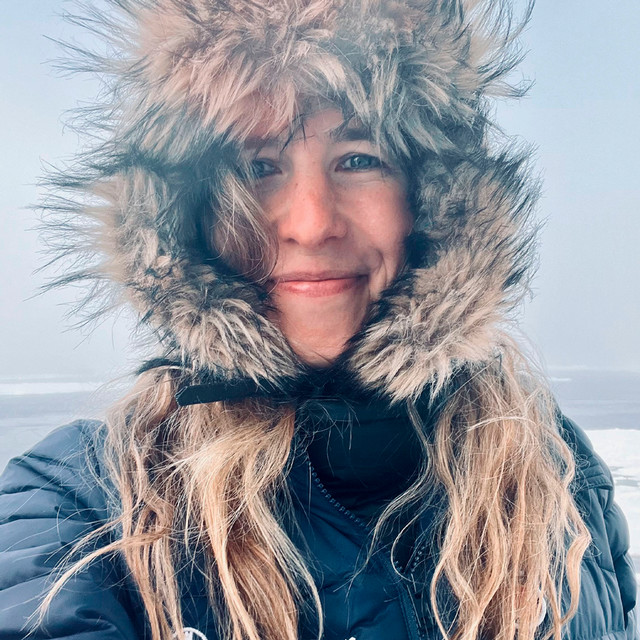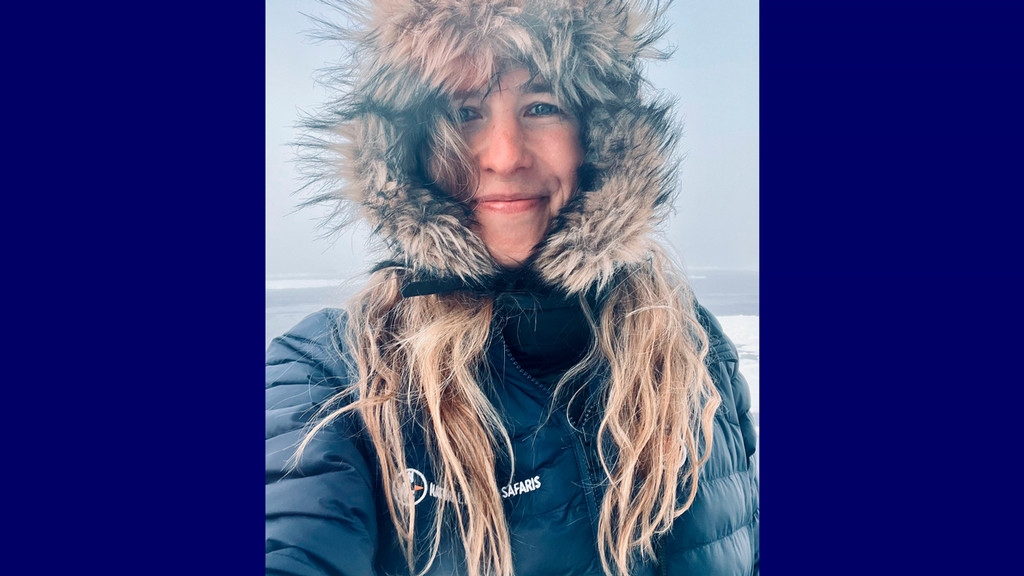University of Richmond alumni are fascinating, insightful, reflective, and living lives of purpose.
Meet Katie Losey, ’02. She is head of partnerships and conservation at Natural World Safaris, a member of The Explorers Club, and a guest writer for the Biomimicry Institute. New York City is her first home, and the world is her second one.
A fervent traveler, she weaves science, story, and lived experience to help people connect with the wild — not just to witness it, but to feel a deep awe and reverence for the natural world and a compulsion to protect it.
In this interview, she talks about life after graduation, her advice for current students, and why the roads much less traveled are for her.
WHAT’S THE BEST THING TO HAPPEN TO YOU IN THE LAST FEW YEARS?
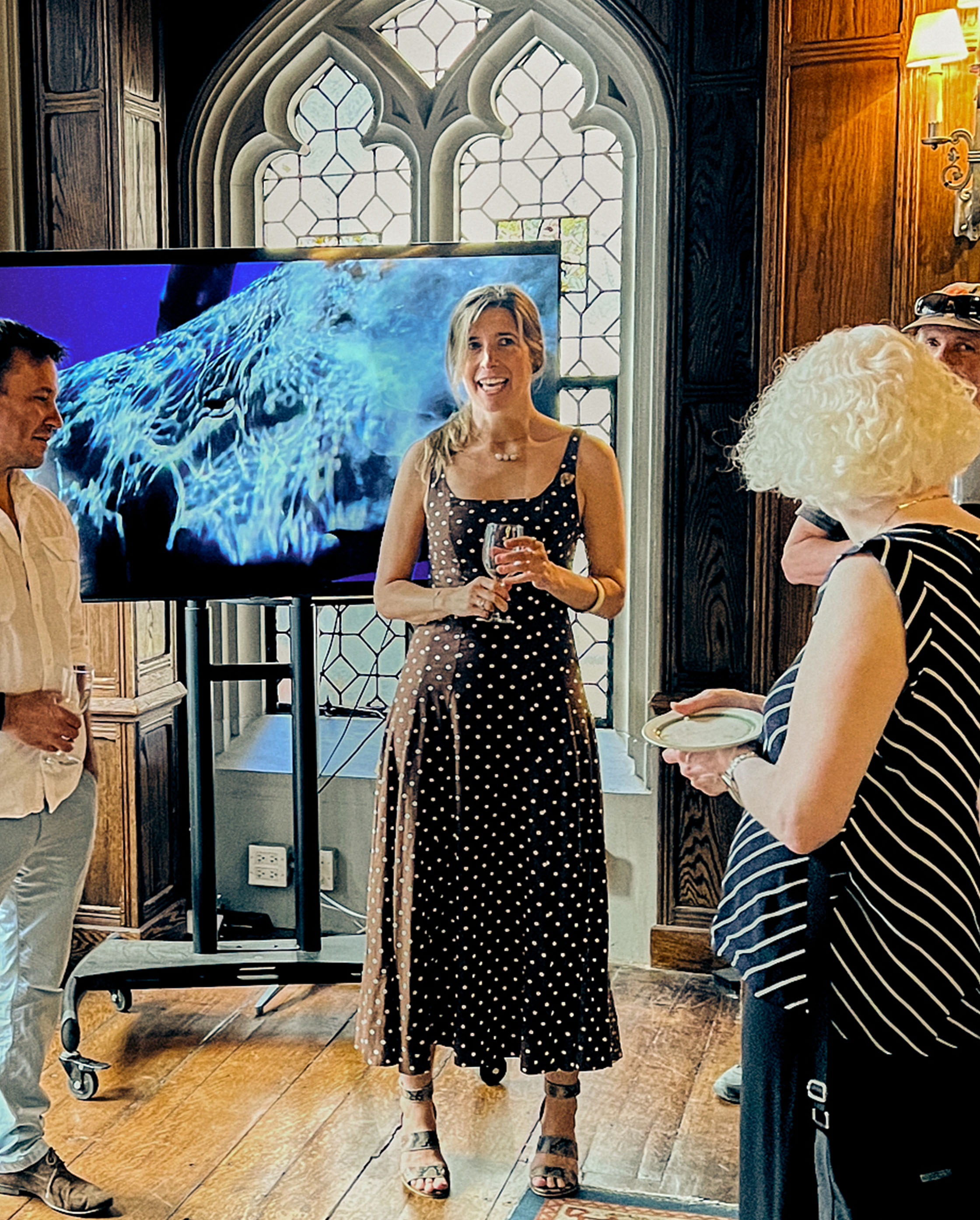
From a professional perspective, I joined Natural World Safaris, a travel company I’ve had a crush on for years. They’re known for creating “next-level wildlife” journeys — a very natural fit for me. My first day, they sent us away for two weeks to Svalbard, Norway, on their 12-person vessel. It is a place in the High Arctic where polar bears outnumber people. You can experience fog rainbows, and there’s a bird (the arctic tern) that you may not look at twice, but it migrates from the North Pole to the South Pole. In its lifetime, it flies the equivalent of three roundtrips to the moon. Wild! My first night on the job, I was woken up at 2 a.m. because they spotted a polar bear and her cubs ahead. Since it’s 24/7 daylight (land of the midnight sun!), you don’t have to miss a thing. More typically, I work from New York City.
Another singular day that stands out: I was visiting the northern fjords of Norway to swim with orcas when we located a massive feeding frenzy. A friend and I were underwater watching the orcas devour the herring. We came up for a breath and realized we weren’t just completley surrounded by orcas — humpback whales were arriving to get in on the goods, too. That night, we witnessed the Aurora Borealis. Unreal.
And of course the ordinary everyday day-to-day with my friends and family.
WHAT’S SOMETHING YOU’VE HELD ONTO SINCE COLLEGE?
I still have my Spider card. I still have my extra-large lacrosse sweats and gear. But I would say in a real way, I still have this hunger to get out into the world. My first time abroad was when I studied in Australia during the 2000 Olympics. That semester planted the seed inside me — we used it as a launching pad for travel to Indonesia and Thailand, for example.
Travel is such a huge gift. It gives us perspective. We think we learn everything through a book or through school, but getting out there and experiencing it — many could argue that’s the real education.
WHAT DOES BEING A SPIDER MEAN TO YOU?
D-hall. I still think about it.
What’s your advice for students on campus today?
As you come across podcasts, books, and articles that really speak to you, send a personal note showing your interest or your appreciation for that work. It helps you find your voice and build a community.
For a long time, I wanted to be that bridge between storytelling and the sciences, but I thought to myself, “Am I qualified? Can I do this?” I did it, and a year later I was getting messages from students from University of Cambridge. To my surprise, articles that I didn’t feel qualified to write were being featured in coursework for their sustainability program! That was the green light for me to trust myself and go for it. I think a lot of the work we’re doing can feel isolated. Getting that type of feedback is incredible.
WHAT MAKES YOU OPTIMISTIC?
Random acts of kindness. Seeing a rescue dog well-loved brings me joy. Seeing an old couple chuckling together gives me hope.
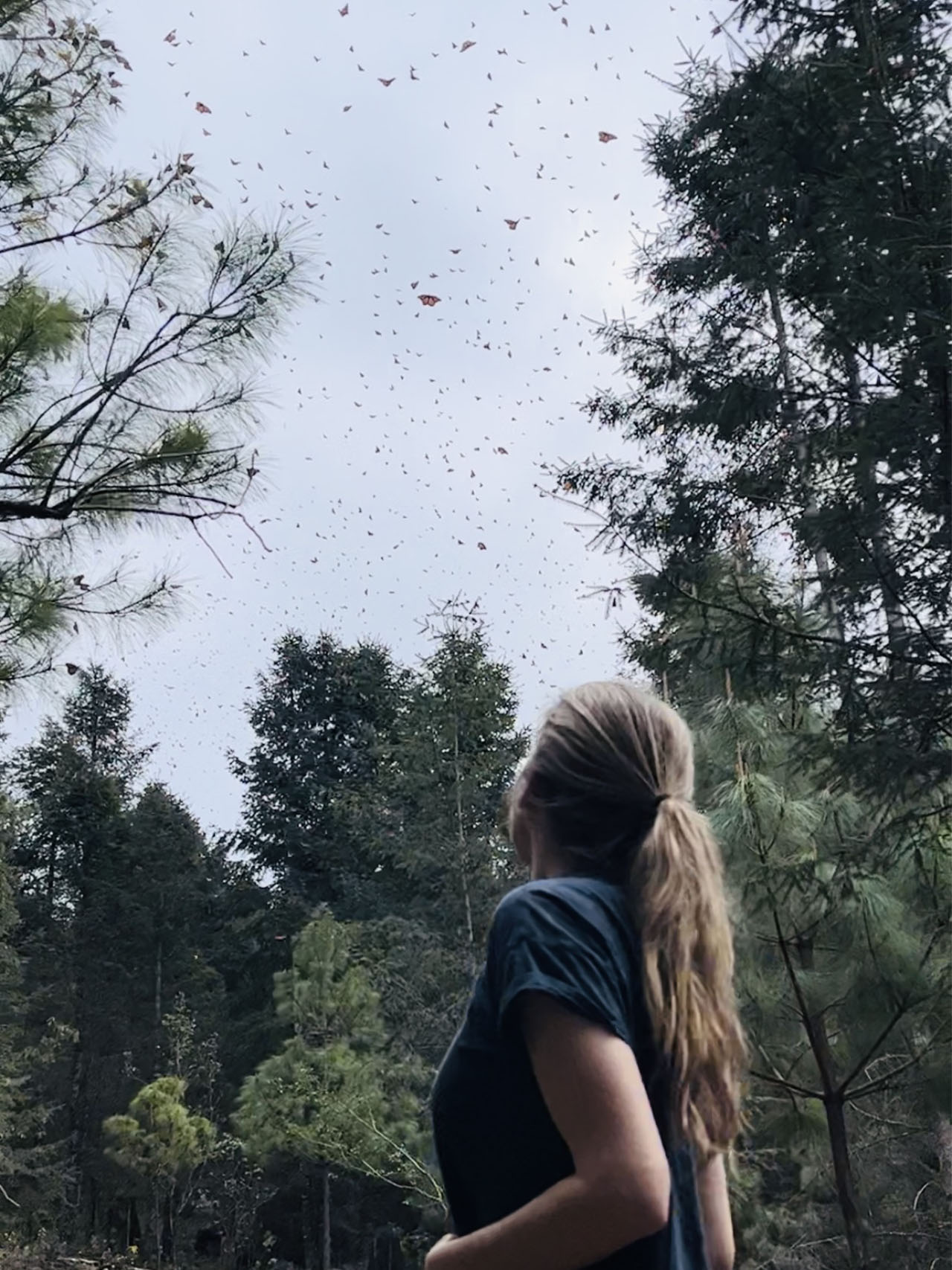
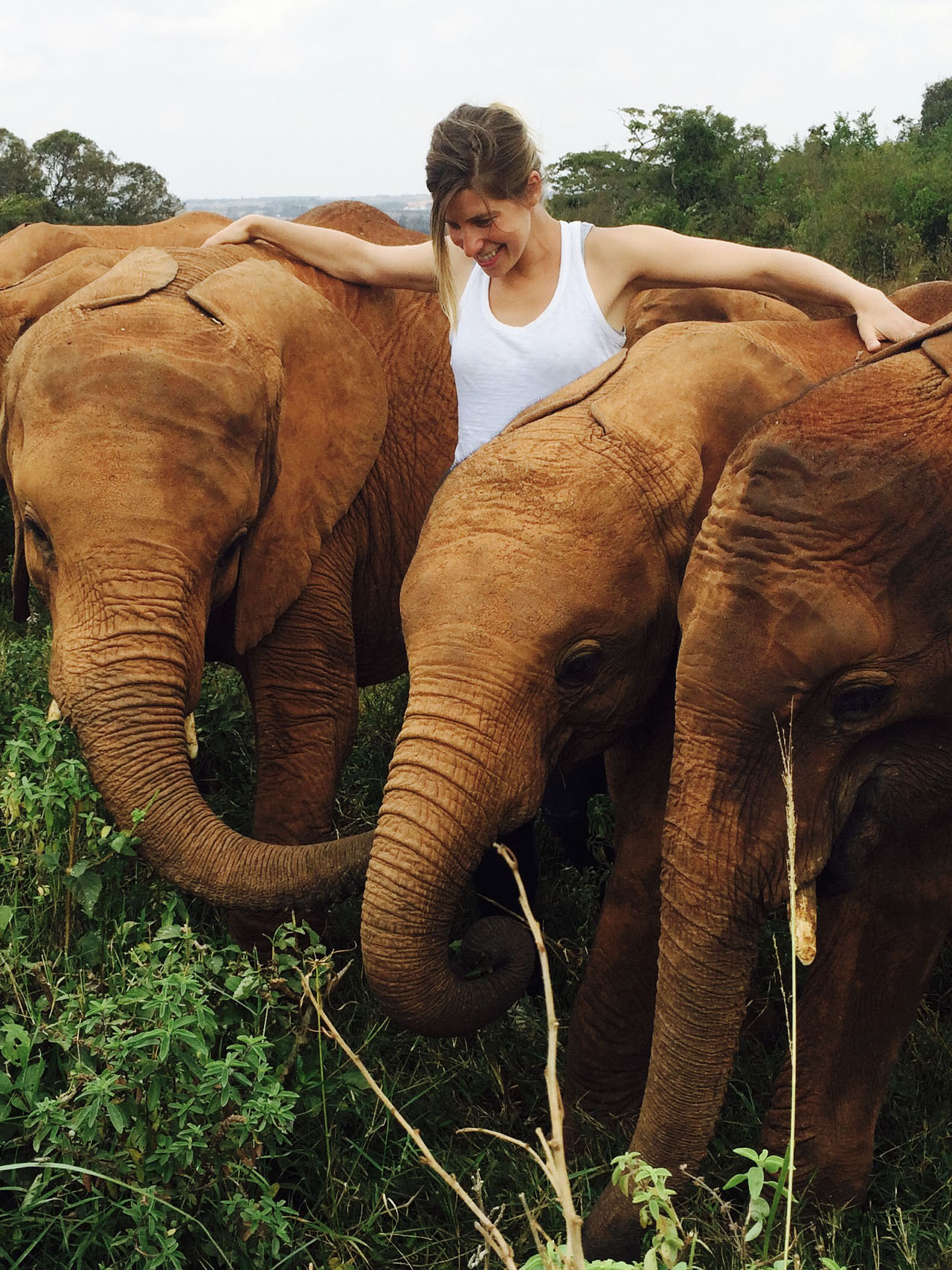
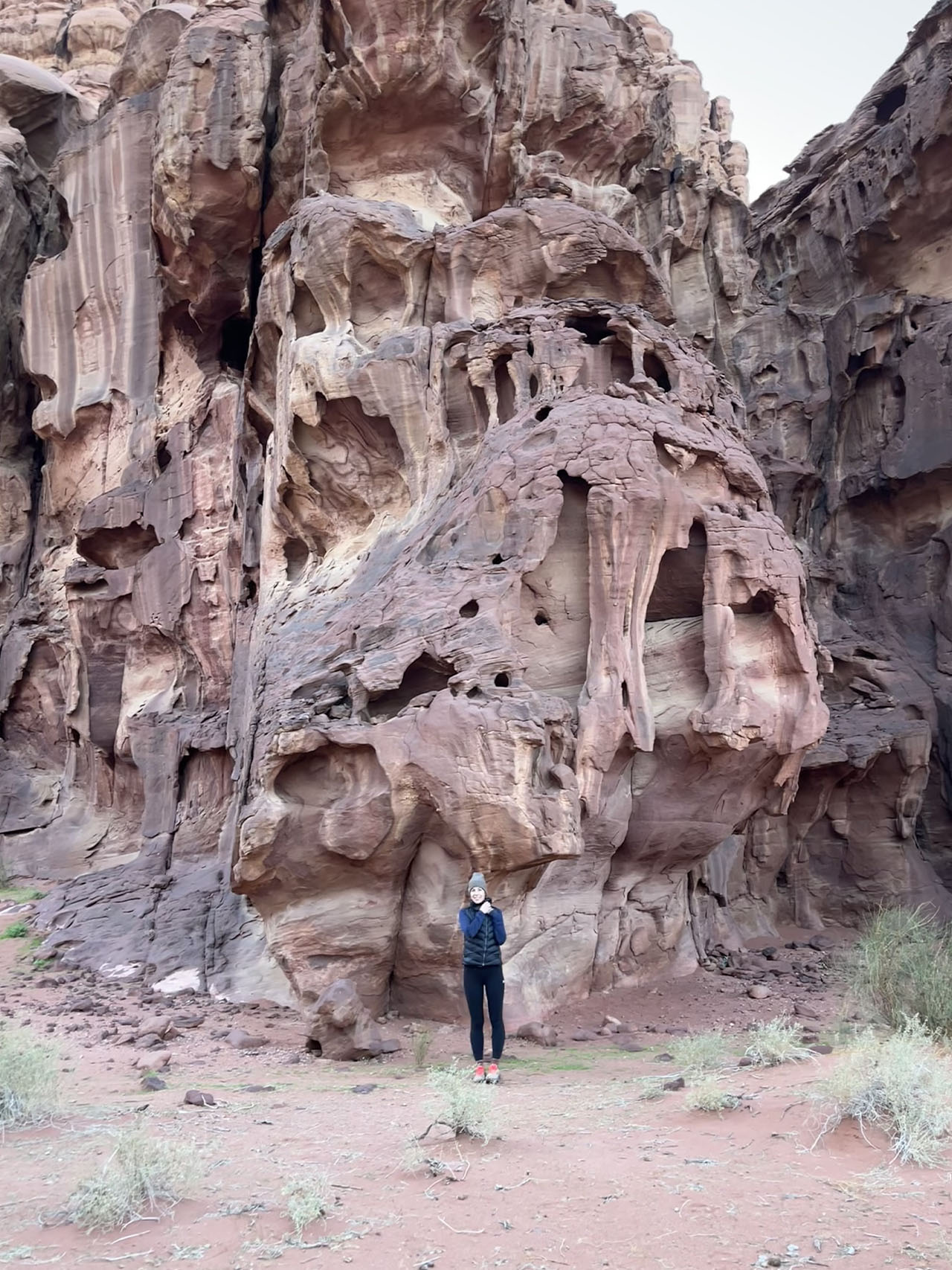
“I wanted to be that bridge between storytelling and the sciences, but I thought to myself, ‘Can I do this?’”
WHAT’S ONE THING YOU’VE LEARNED NOT TO WORRY ABOUT?
My coffee, cereal, and ice cream consumption. JK. I’d say feeling like you need credentials for every single thing to have a seat at the table. You don’t have to check every arbitrary box to be part of the conversation and be able to contribute.
For example, in June 2025 I led a panel for Natural World Safaris during World Oceans Week at The Explorers Club on how tourism can either help protect and preserve places or destroy them. I was deeply intimidated by the extraordinary group of legends in the building — so many decorated and accomplished people. And while imposter syndrome crept in, I am thrilled I said yes to that event because I saw once again how people crave authenticity: those who are human, self-aware, and willing to offer a fresh perspective and be honest about knowing what they don’t know.
In most (but not all) cases, a master’s degree or Ph.D. should not be a barrier to being in the room. We had an incredible discussion that day, and our rawness, honesty, and diversity of lived experiences made it so compelling.
WHAT’S THE MOST IMPORTANT THING YOU’VE LEARNED?
Go down the dirt roads in life. Don’t be tempted to just go down the paved roads that so many have done before. There are so many different lives we can live and so many versions of a remarkable life out there. Make sure you go down the path that speaks to you, and show up for yourself.
